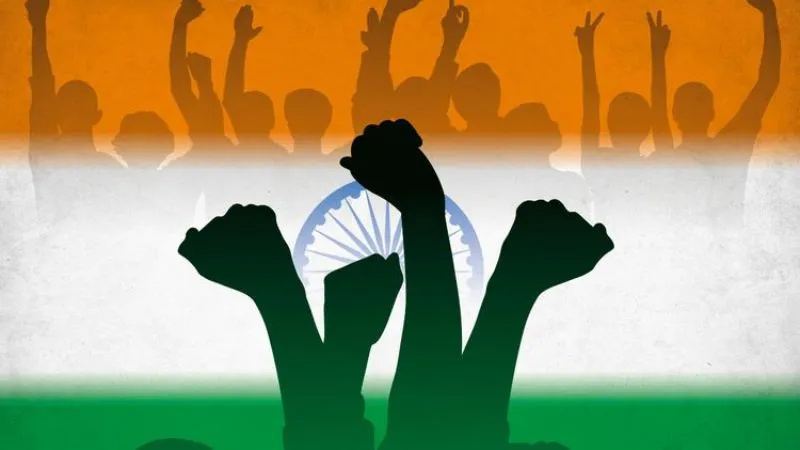As the political atmosphere in India heats up in anticipation of the upcoming 2024 Lok Sabha elections, alarming statements have emerged, casting doubts on the future of democratic processes in the country. One such statement, made by Parakala Prabhakar, a prominent political economist and social commentator, has sparked controversy and raised questions about the sanctity of India’s democratic principles. During a recent interview with investigative journalist Deepak Sharma, Prabhakar claimed, “If Modi wins again in 2024, there may never be elections again. The constitution of the country might change.”
Such a declaration has understandably stirred concern among citizens, prompting a closer examination of the legal framework that underpins India’s electoral system. Can elections truly be abolished in India? Let’s delve into the constitutional and legal aspects to debunk these alarming assertions.
First and foremost, the foundation of India’s democracy lies in its Constitution, a meticulously crafted document that enshrines fundamental rights and delineates the powers and responsibilities of the government. The Constitution unequivocally mandates the holding of regular elections to ensure the democratic representation of the people. Article 324 specifically empowers the Election Commission of India (ECI) to conduct free and fair elections to the Parliament and state legislatures. Any attempt to circumvent this constitutional mandate would require extensive amendments to the Constitution, a process that is inherently stringent and deliberative.
Furthermore, the doctrine of basic structure, established by the Supreme Court of India, serves as a bulwark against arbitrary changes to the constitution. This doctrine asserts that while amendments are permissible, they cannot violate the core principles and values embedded in the Constitution, such as democracy, federalism, secularism, and the rule of law. Therefore, any proposal to abolish elections would undoubtedly be subject to rigorous scrutiny by the judiciary to ensure its conformity with the basic structure of the Constitution.
Moreover, the democratic ethos of India is further reinforced by the principles of parliamentary democracy, where elected representatives are accountable to the electorate. The dissolution of elections would not only undermine the foundational principles of democracy but also deprive citizens of their constitutional right to participate in the governance of the country.
Additionally, the concept of federalism, enshrined in the Constitution, distributes powers between the central and state governments, ensuring a system of checks and balances. Any unilateral attempt by the central government to abolish elections would infringe upon the autonomy of the states and disrupt the delicate balance of power envisaged by the Constitution.
Furthermore, the vibrant and pluralistic nature of Indian democracy, characterized by a robust civil society, free media, and an independent judiciary, serves as a safeguard against authoritarian tendencies. Any deviation from democratic norms would undoubtedly face staunch opposition from various quarters, thereby upholding the resilience of India’s democratic institutions.
In conclusion, while sensational claims about the abolition of elections may spark apprehension, a careful analysis of India’s constitutional and legal framework reveals the inherent safeguards that protect the democratic ethos of the nation. As citizens, it is imperative to remain vigilant and uphold the principles of democracy, ensuring that our collective voice continues to shape the destiny of our nation.
As Gandhi Ji famously said, “The spirit of democracy cannot be imposed from without. It has to come from within.” This sentiment underscores the essence of Prabhakar’s warning – the responsibility for safeguarding democracy lies with each individual, and passivity is not an option.
This article was published by a students as part of the Youth Ambassador Program. Views expressed are the author's own.
